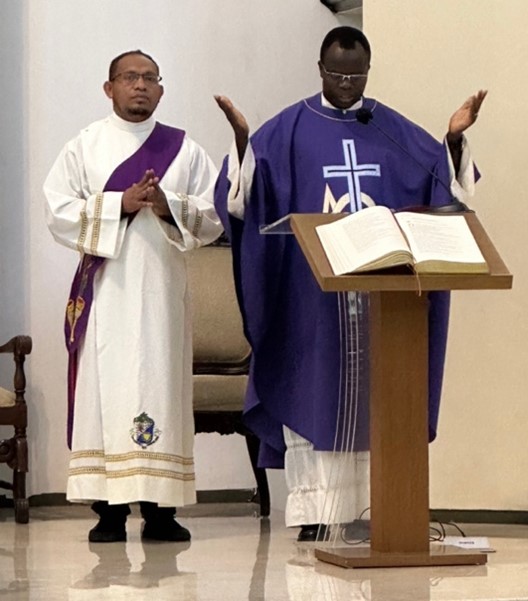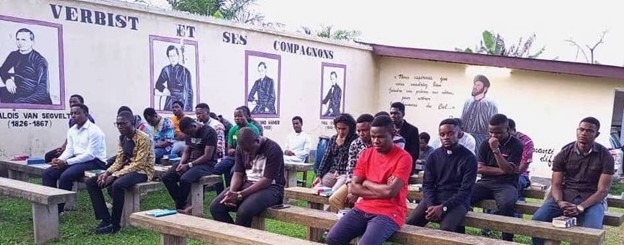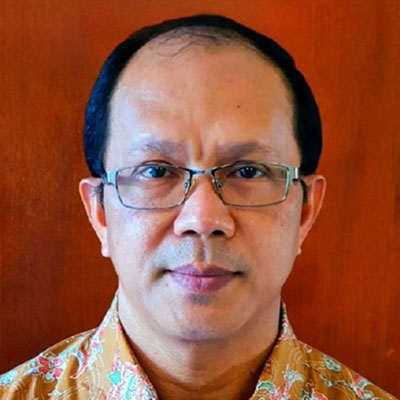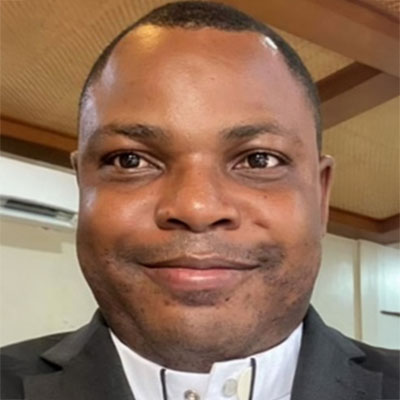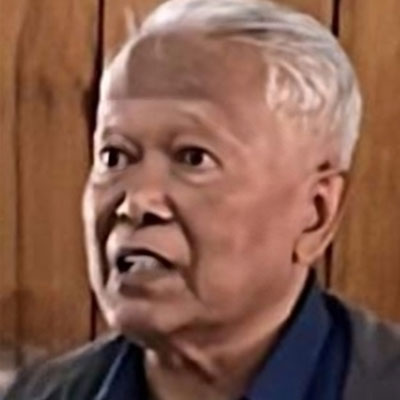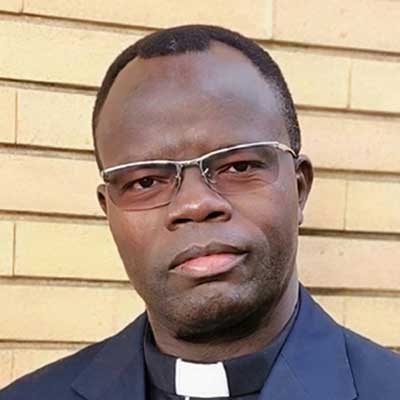 by Roger Nshono Mbanji, cicm
by Roger Nshono Mbanji, cicm
General Councilor
On June 17, 2023, I attended the priestly ordination Mass of a confrere in Batouri, Cameroon. While I was there, something unexpected happened; instead of God addressing me directly, as He did with Abraham, or through an angel, as with the Virgin Mary, a confrere discreetly approached me from behind and handed me the phone. He whispered that it was urgent and that the Superior General wished to speak to me. When I answered the phone, the Superior General informed me that the capitulants gathered in Nemi had just elected me as a General Councilor. He said they were waiting for my reply.
Time for discernment
During the training of formators, we were taught to prioritize discernment, particularly when making conscientious decisions in our lives. However, we may find ourselves in situations that require us to make quick decisions, such as a driver who must decide within seconds when faced with obstacles on the road. The events of June 17 reminded me of the sons of Zebedee, who immediately left their boat and their father to follow Jesus upon hearing His call (Matthew 4:22). Unlike the sons of Zebedee, I had the opportunity to spend time in discernment, but ultimately, I entrusted the decision-making process to those who gathered in the name of the Lord. I confidently said “yes, I do accept it” with faith in their discernment.
Returning to the Mass to continue listening to the bishop's homily, le confrère seated next to me, realized that I had just received some shocking news. He asked, “A bereavement?” I said, “No, it’s the Superior General.” After a moment of silence, having worked out what was happening, he whispered a few soothing words: “Courage, my brother, the Lord will be with you.” At the end of the Mass, I found many messages of congratulations and encouragement. One came from a young confrere: “Disturb us, Lord!” It was from a confrere who knew I liked to recite this prayer mentioned in the Acts of the 15th General Chapter. It reminded me: “My brother, the Lord has taken you at your word.” For our reflection, I've chosen to share how God bursts into our lives and comes to "disturb" our plans, thus calling us to missionary mobility.
Formed for mobility
CICM missionaries are trained in missionary mobility and sportsmanship. In our formation communities,settling into a responsibility, an apostolate, or in a class is hard. Everything changes every month, quarter, semester, and year. I am privileged to know what’s happening in our ten formation communities (Pre-Novitiates, Novitiates, and Theologates). Formators develop programs that enable young people in training to experience missionary mobility. Every weekend and during the vacations, they visit CICM communities, parishes, schools, prisons, garages, families, and hospitals to experience what they learn at school. They often come back happy from these experiences.
When we join CICM to live out its charism, we know the demands of mobility. For example, many of our confreres have been trained in three or four countries, which is a great asset. The 16th General Chapter urges the General Government to continue this current good practice of intercultural living (Cf. Exhortation 4). In most cases, we are involved in the process to better understand the merits of such formation.
Involved and open
In some communities, formators involve students in the discernment process by asking for their suggestions before assigning them to any task. However, students know that the final decision rests with the formators and generally accept it.
The evaluation grid for graduate students calls for students to be assessed on their ability to discern from the community's point of view, to own the community's decisions, and to implement them. We will never be satisfied with decisions taken based on discernment made by others. Art. 32 of our Constitutions states, “Through our vow of obedience we commit ourselves in a spirit of faith to obey lawful Superiors when they give commands according to the Constitutions. We accept that they make the final decisions. In particular, we accept our assignments in service of the mission entrusted to the Institute.” The Thirteenth Rule of the Spiritual Exercises of St. Ignatius of Loyola goes further, “In order not to deviate in any way from the truth, we must always be prepared to believe that what appears white is black, if the hierarchical Church so decides (...)” I admire the way our religious family's consultative bodies are organized. It's a great treasure to be preserved and one we must use without abuse.
Getting out of our comfort zone
We often need to work on our own will and the decisions of our superiors. One thing that holds us back is most often our fear of leaving our comfort zones and daring to explore new paths. The first steps are always the hardest. Our comfort zone is like a vice. It's so powerful that many of us are prevented from realizing our full potential. I’m not ignoring the fact that there are certain circumstances that can negatively condition our “yes” to the call from our Superiors to exercise certain responsibilities (cases of illness, the feeling of unworthiness in relation to the respect of the office to which we are called, the fear of carrying responsibilities that are sometimes overwhelming...). The tragic side of the safety zone is the tendency to settle into complacency, from complacency to boredom and from boredom to the destruction of ourselves and others.
I admit it is challenging to start a new experience, learn a new language, live in different climatic conditions, adapt to a new diet, forge new human relationships, leave behind a certain material security, and readjust certain personal convictions ingrained in us. However, getting out of one's comfort zone means learning new skills and developing new habits. The acquisition of new skills, though demanding, reinforces our adaptability to new situations and develops our self-confidence.
With Abraham, Mary and Théophile Verbist
By accepting to become a member of CICM, we commit ourselves to follow in the footsteps of those who, like Abraham and Mary, dared to consent to the Lord’s “disturbance,” convinced that God burns us without consuming us. God’s disturbance is a path that sets us free. God told Abraham, “Leave your country, your kindred, and your father's house, and go to the land I will show you...”. (Gen 12:1). And Abraham obeyed. He received abundant blessings and became a father of believers. Through the Angel's announcement, Mary let herself be disturbed by God's irruption into her life. Her “fiat” made her the Mother of the Savior and the most blessed of all women. Théophile Verbist obeyed God's call, leaving his beloved native Belgium, trusting in Divine Providence, and here we are, the beneficiaries of a good and beautiful CICM mission. The Lord disturbs us to bring us back to true life, accompanies us with his pacifying presence, and provides for our needs. So, the time has come to dare to step out of our fears and comfort zones and let ourselves be disturbed by the Lord. §
